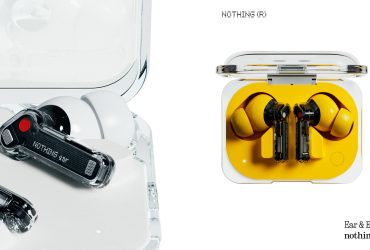Back in the day, scams came from a Nigerian Prince desperate for your help to get $30 million out of his country quickly. With “your help” you would be rewarded with a big handsome commission. How that actually worked is anyone’s guess. Just like the internet, over the past decades, scams too have become more sophisticated and with sophisticated software that easily allows you to cut and paste corporate logos, or grab photos, plus the simplicity of building a social media page, it is now harder than ever to detect what is real from what is fake.

According to statistics by the Canadian Anti-Fraud Centre, Canadians have already lost $144M to fraud so far in 2021, a 30% increase over whole year of 2020 with Canada’s busiest shopping events still to come. With Black Friday and the holiday season just around the corner, it’s peak time for scammers to wreak havoc on unsuspecting shoppers. One of the most common frauds is to create a social media account, adorned with beautiful professional photos, lots of reviews from satisfied customers with a big “shop now” button. The problem of course is that the pictures are stolen, the reviews are fake and once you have purchased the item, you will never see it. The old adage; “if it is too good to be true it probably is too good to be true”.
“As alluring as good deals may be, don’t be too quick to jump at these seemingly “too good to be true” offers. Often, these offers will more likely than not contract malware on your device or download some unwanted clutter software rather than give you a bargain. This is why it’s vital that you stay vigilant of potential scams that will be at large during the upcoming holiday season,” comments Daniel Markuson, a digital privacy expert at NordVPN.
Most common online shopping scams
Usually, scammers set up a fake website, online store, or social media account that can look like legitimate online retailers. They offer some very good deals, but you may receive a fake item or no item at all after making a payment.
Another popular scam is for criminals to present themselves as genuine sellers on classified websites (such as Amazon or Ebay, for example). They then disappear after you make a payment.
“Some of the most commonly reported products that scammers are attempting to sell include smartphones, computers, shoes, and even pets,” says Markuson.

5 tips to avoid getting scammed or defrauded while shopping online
Daniel Markuson, a digital privacy expert at NordVPN, gives 5 tips on how to avoid being scammed while shopping online:Stick to HTTPS Websites: As a means of security, it’s important to visit and shop on sites that use HTTPS. The “S” stands for “secure”, and sites that use HTTPS ensure that your personal details are at least protected by TLS encryption. This extends from your browser to the site you are on. While HTTPS isn’t everything when it comes to security, it definitely ensures an added level of protection.
Checking whether or not a site uses HTTPS is easy to do. Simply look at the URL bar to see if it begins with “https://”.
Check that the URL is right: Checking the URL of the website sounds simple, but it’s important to remember to do this prior to entering personal information to complete your purchase. Making sure you’re on the right online store could be the difference between entering your card details on “Nike.com” and “n1ke.com”. This small variance in URLs leaves a huge opportunity for hackers and scammers to land you on a malicious website. If you think you’re on an imitation site, delete everything you entered and exit the site.
Beware of shortened URLs: Marketing experts often make use of URL shorteners to make long URLs more aesthetically appealing, but this opens the door for scammers. These bad actors can use URL shorteners to hide the URL you’re opening.
If you stumble across an ad for a bargain with a shortened URL, try checking out the company’s site by entering their address manually. If you can’t seem to find the deal from the ad manually, you might have saved yourself from a scam.
Avoid shopping on public Wi-Fi: It’s generally best to avoid shopping online using public Wi-Fi networks because public Wi-Fi typically exhibits poor security and is often scanned by hackers to breach weak connections. Public computers are another insecure way to shop, but, if you lack alternatives, VPNs are a way to encrypt your connection and protect your data.
Monitor your bank statements: One of the best ways to ensure you aren’t being scammed is by monitoring your bank statements. Doing this allows you to not only keep track of purchases and costs but can also help you be quick to respond in case of a suspicious transaction.
Many banking apps have push notifications to help you track payments made on your account. This makes it a lot easier to stay up to date with what’s going on with your accounts.
“Additionally, it’s always a good idea to practice good password security. And if you have shopped online before, you get a sense of the type of information legitimate websites normally require during checkout. Generally, websites shouldn’t ask for your personal ID number or your password to another site or service to sell you something. If they do this, you are probably at risk of being scammed,” warns Markuson.
NordVPN is a VPN service provider used by over 14 million internet users worldwide and provides double VPN encryption, malware blocking utilizing over 5,000 servers in 60 countries worldwide.








